Dani Garavelli: Where is the urgency around Scotland’s alcohol harm?
Mary was immunocompromised and they were terrified of giving her Covid. They still brought her groceries, but they left them outside her door. Then they’d park themselves outside her flat and talk to her through the window. She was fine, she told them. And, yes, of course, she was eating what they’d brought her.
But in June, Mary collapsed. An ambulance was called and the siblings entered her flat. What they saw there will live with them forever: her fridge full of rotten food, her carpet strewn with vodka bottles and smeared with bodily fluids. Mary was taken to hospital, but it was too late. She died the following day at the age of 65.
Advertisement
Hide AdAdvertisement
Hide AdNow Gary is experiencing that mix of emotions familiar to anyone who has lost a loved one to alcoholism: grief, guilt, anger “You ask yourself, ‘What more could we have done?’” he says. “We were terrified of putting her in danger. All the messaging was about keeping away. But she wasn’t eating and no-one knew how bad things had got. The worst of it is, in the last few months of her life, we didn’t even get to hug her.”
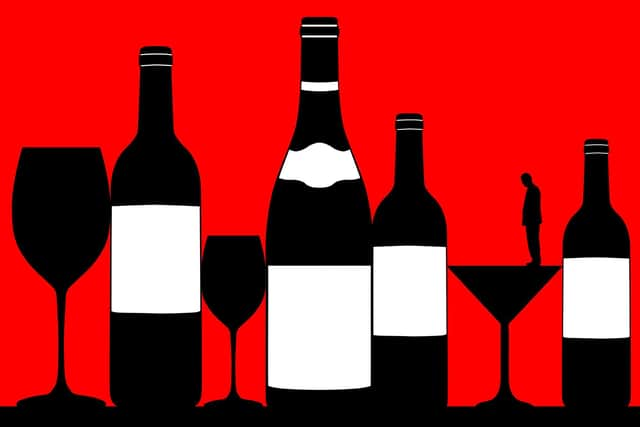

Not everyone drank more during lockdown. Indeed, some people used the lack of social interaction as an opportunity to give up. *James, an alcoholic, took his last drink shortly before Covid struck. But he believes lockdown made it easier for him to stay sober. “I was someone whose job involved attending functions,” he says. “Drink was all around me, but [the first] lockdown allowed me to undergo a nine-week detox.” By the time restrictions were lifted, he was ready to embrace a new way of living. “I try to avoid those functions now,” he says. “And when I do go, I drink non-alcoholic beer.”
Dr Alastair MacGilchrist, a liver specialist and chair of Scottish Health Action on Alcohol Problems (SHAAP), says there was a polarisation of alcohol consumption during the pandemic. Those who were light to moderate drinkers, drank the same or less, while, in general, those who were already heavy drinkers drank more.
“During the pandemic, the pattern of consumption was different,” MacGilchrist says. “It was all off-sales, uncontrolled drinking at home, drinking alone, where there are no measures, and no off button.”
Alcohol is a short-term stimulant, but a long-term depressant. Yet many people use it as a coping mechanism, self-medicating against anxiety. As their anxiety levels increased, so too did their consumption.
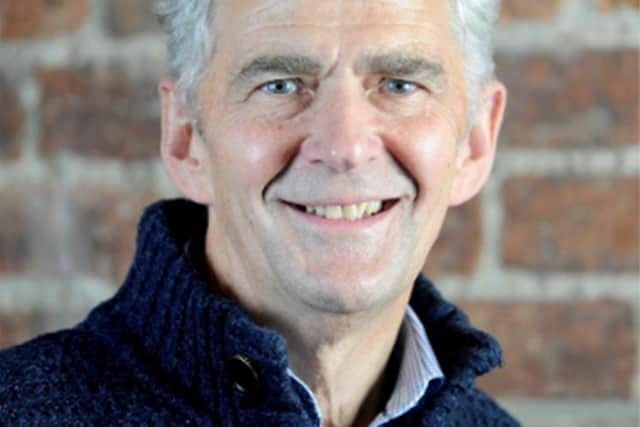

Before the pandemic, *Ian was already drinking two or three nights a week; once lockdown kicked in, it became part of his daily routine. “At first there was a bit of a holiday feel: we’re stuck in, let’s make the best of it,” he says. “We were scared for family members, but other than sit tight, there was nothing else to do, so boredom played a part.
“Then, after the first few weeks, things got harder. My eldest son has special needs, but he was getting no support. My wife and I were trying to work while home-schooling our six-year-old. Getting through the day was rewarded with a drink after we put the kids to bed. It was just what we did, like going for our daily walk. At my worst, I was drinking four beers and a few chasers a night.”
At the same time, the pandemic was making it more difficult for those with a drinking problem to access the country’s already under-capacity services. Organisations such as Alcoholics Anonymous did their best, taking their sessions online, but in-person recovery meetings stopped, and outreach support from Community Addiction Teams was reduced.
Advertisement
Hide AdAdvertisement
Hide AdIn the first year, people were less likely to go to their GPs or to A&E, partly because they were being told the NHS was stretched to breaking point dealing with Covid cases, but also because they were scared of catching the virus themselves.
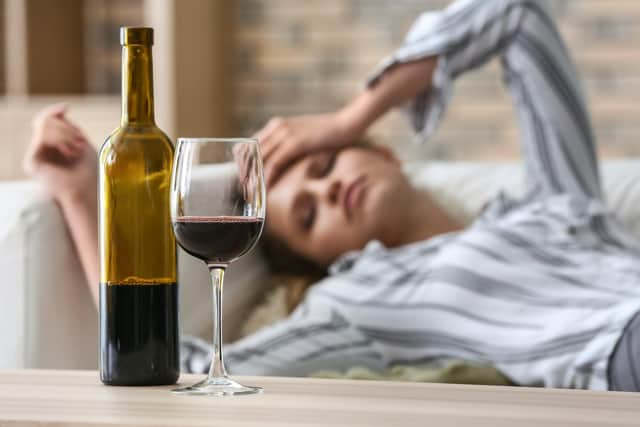

MacGilchrist adds: “There was a reduction in inpatient services, too. Many of the alcohol addiction beds were diverted to Covid patients, and it took them a while to get back on board.”
The increase in consumption among heavy drinkers, combined with the pressure on services, had an immediate and shocking impact on the alcohol death figures.
In 2019 (after Minimum Unit Pricing had been in place for a year), the number of alcohol deaths dropped by a tenth. But in 2020, they rose by 17 per cent to 1,190, and in 2021 by a further 5 per cent to 1,245: the highest figure since 2008, and only 88 shy of the number of drug deaths.
The fact the alcohol death toll continued to rise in 2021, despite the easing of Covid restrictions, is particularly troubling. It has raised fears new patterns of harmful drinking, which had their roots in lockdown, may have become entrenched.
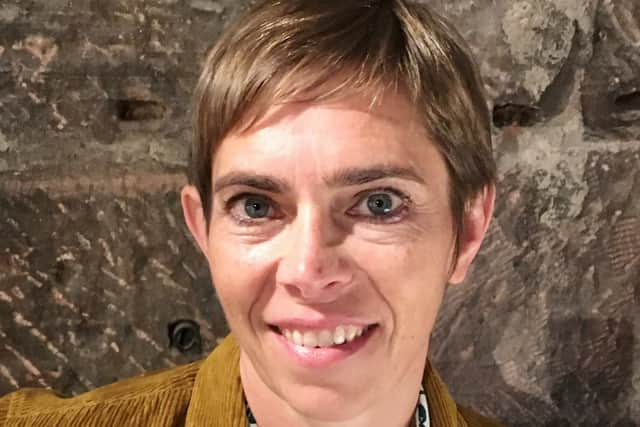

This is not true for everyone. In January 2021, Ian, who has stage 4 kidney disease, acknowledged the impact his alcohol consumption was having on his physical and mental health and stopped drinking, with support from his GP.
But in the last few months, I have spoken to many others who are worried their alcohol consumption has spiralled out of control.
*Katherine, a former music PR, told me she burst into tears when she heard the alcohol death figures earlier this month. “I thought, ‘What on Earth am I doing?’” she says. “I’m afraid I’m becoming a person I don’t want to be: that cliché of a middle-aged woman who is a bit of a wino.”
Advertisement
Hide AdAdvertisement
Hide AdKatherine moved from London to the Highlands in 2019 to care for her father, who had non-Hodgkin’s lymphoma. She began drinking more during lockdown as his health deteriorated and her isolation increased. In May 2020, he spent a month in hospital, before returning home to die.
More than a year on, still traumatised, Katherine is drinking a bottle and a half of wine a night. “Not every night,” she stresses. But she has put on three stone, and desperately wants to cut down. “I don’t want to put a strain on the NHS for something I can control. I want to be a better version of myself,” she says.
Two recently-published reports by the Institute of Alcohol Studies (IAS)/HealthLumen and the University of Sheffield explored the potential legacy of the way patterns of drinking changed during the pandemic.
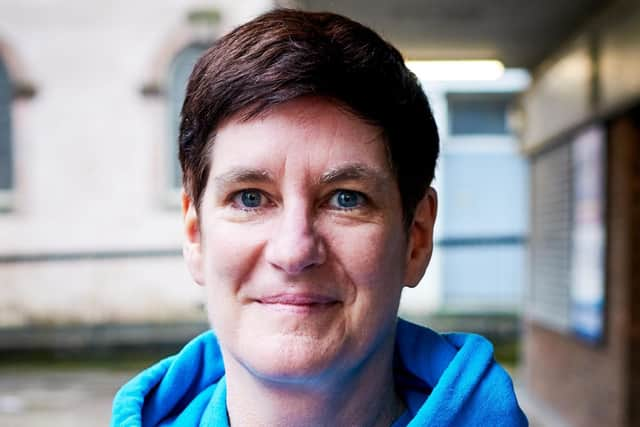

They compared the consequences for individuals and the NHS if: a) pandemic drinking patterns quickly returned to “normal” b) pandemic drinking patterns continued for a year or two and c) if pandemic patterns of drinking continued long term.
According to the IAS, in the worst-case scenario, by 2035 there would be 147,892 extra cases of alcohol-related diseases – including liver cirrhosis and breast cancer – across the UK, and 9,914 additional premature deaths. Meanwhile, the University of Sheffield predicted a worst-case scenario of 25,192 additional deaths and 972,382 additional hospital admissions, over the next 20 years, at a cost of £5.2 billion to the NHS.
Of course, Scotland had a drink problem long before Covid struck. As with drug addiction, alcoholism is inextricably linked with poverty and inequality. Last year, alcohol-related death rates were nearly five times higher in the 10 per cent most deprived areas of Scotland than in the 10 per cent least deprived areas. Alcohol-related hospital stays were nearly eight times higher.
Unlike taking illegal drugs, however, drinking is socially acceptable. More than that: it is a social expectation. Alcohol frees us of our inhibitions and oils our interactions. It is how we celebrate and how we commiserate. The sun is shining: pour yourself a nice cold beer! It won’t stop raining: pour yourself a G&T! Birthday cards exhort us to: “Get into the party spirit”; soap opera characters chatter about “Wine O’clock”; T-shirts joke: “Save Water: Drink Prosecco”.
Alison Douglas, chief executive of Alcohol Focus Scotland (AFS), says alcohol marketing is like wallpaper: so ubiquitous we barely notice it, though it filters into our subconscious. Those in recovery do notice it, of course. In supermarkets, at football, on social media, they are bombarded with images of drink which constantly threaten their sobriety.
Advertisement
Hide AdAdvertisement
Hide AdThe social acceptability of alcohol makes it more difficult for individuals and those who care for them to recognise when their consumption has become problematic. “Alcohol problems are much more hidden in plain sight,” says Justina Murray, chief executive of Families Affected by Drugs and Alcohol. “Because alcohol is everywhere, you can easily drink all the time and nobody would even really notice.”
Yet once the problem is entrenched, those in the grip of alcoholism suffer the same stigma as those addicted to drugs, from their peers, and even, sometimes, from health professionals who blame them for their condition.
Before the pandemic, treatment services were already insufficient to meet demand. Cuts to alcohol and drug partnerships implemented by the Scottish Government had been reversed, but funding had not kept pace with inflation.
“There are absolutely not enough services available,” says MacGilchrist, who would like to see them doubled as a starting point. “As you can imagine, when people come into hospital with liver disease, their alcohol problem is already quite advanced. They stay in hospital for a while and their liver settles down because they are not drinking, and then they are sent home. It’s hopeless, at this treatable moment, for them to be told [community-based services] will see them in 12 or 24 weeks’ time, because by then they will be back drinking again. You need the capacity to allow immediate access.”
Beyond that, there is the question of what “access to services” really means. Patients who have detoxed with very little psychological support may leave hospital with a number to phone, or an appointment set up, so a box can be ticked. But if no-one is supporting them to ring that number or keep that appointment, it may be a waste of time. “It can’t be a passive, ‘Here’s where you can get help if you want it’,” MacGilchrist says. “It needs to be more hands-on.”
Murray says Families Affected by Alcohol and Drugs saw a massive upsurge in demand during the pandemic, not only from the relatives they were set up to support, but also from individuals who were worried about their own consumption, but could not reach other services. Its helpline supported 2,576 people in 2021-22, a 9 per cent increase on 2020-21, but an 81 per cent increase on 2019-20.
Alcohol was the top concern of people contacting it, yet despite this, she says, most of the political noise is around the country’s drug deaths.
“I think our relationship with alcohol is so enmeshed, we don’t want to think of the harm it causes,” she continues. “The alcohol-related deaths are too close to home whereas the drug deaths are seen as something other-worldly.
Advertisement
Hide AdAdvertisement
Hide Ad“I listened to what [public health minister] Maree Todd said when the figures were published – that they were looking at ‘alcohol brief interventions’ [sessions aimed at moderating harmful drinking practices] – and I thought, ‘You have [invested] £250m in the national drugs mission. Where is the urgency around alcohol harm?’ We are just not seeing it.”
Murray says the friends and relatives she supports are often frustrated by the way they and their loved ones have been treated. “One father told me he had taken his son to the GP who said, ‘Oh, have you been overdoing it?’ He dismissed it like it was a bit of a joke,” she says.
“Others feel opportunities have been missed to link their loved ones into community support. Where someone goes into detox, or is admitted unplanned to hospital through A&E, there doesn’t seem to be much follow-up or aftercare.
“Hospitals are desperate to get them out the door, but if there’s no follow-up then they are just going to end up back there.”
There is also a huge emphasis on capacity: the principle that an individual has the right to choose whether or not they take up the help on offer. Friends and relatives who try to get involved are often treated as if they are interfering. On the one hand, services will rely on them to pick up their loved ones from appointments; on the other, they can find themselves shut out of care plans under the cover of data protection law. But in keeping relatives out of the loop, a vital resource is lost.
“The experience of many families desperately trying to help the person they love is that the system is geared to minimise engagement,” Murray says. “It’s very concerning.”
So what should the Scottish Government be doing to tackle the country’s alcohol problems? AFS and SHAAP would like to see a ban on alcohol marketing in public places, including public transport, and an end to alcohol sponsorship in sport. Last year, research from the Institute for Social Marketing and Health at the University of Stirling found that, where alcohol firms sponsored clubs and tournaments, alcohol advertising was sophisticated and integrated into the club identity.
Sponsors were visible throughout match days on pitch-side hoardings and shirts, but also in the pre-match build-up, with extensive social media activity, product endorsement from players and competition tie-ins. The Scottish Government has committed to consulting on this in the autumn.
Advertisement
Hide AdAdvertisement
Hide Ad“We anticipate there will be strong lobbying from the alcohol industry and the marketers,” Douglas says. “They will say the impact isn’t as high as we say it is, or that companies ought to have the right to advertise their products, but we say this is compromising the human rights of us all.”
AFS is also keen to see the Scottish Parliament commit fully to Minimum Unit Pricing. The controversial policy, introduced in 2018, is subject to a “sunset clause” which means it will come back to Holyrood in 2024 for MSPs to vote on whether or not it should continue.
Though deaths fell in the first full year after its introduction, reports on its efficacy have been mixed.
A recent report by Public Health Scotland said there was no clear evidence the policy changed how much alcoholics drank or that it helped them overcome their dependence (though this was never the group it was aimed at). But the World Health Organisation believes pricing policies do help reduce harm to people’s health.
“The reason we should be optimistic about the benefits of MUP is that it reduced consumption from offsales by 3.5 per cent,” Douglas says. “It is not going to change our culture on its own, but the international evidence is crystal clear: price is the single most effective measure.”
In terms of treatment, the experts are pushing for an increase in investment and a more joined-up service. In particular, MacGilchrist would like to see more specialist alcohol nurses in hospitals and GP surgeries.
All agree there is an urgent need for action. The figures speak for themselves: 1,245 lives lost last year, with thousands more people left grieving.
Those mourners include *Louise, who has been in counselling since her husband *Kenny died earlier this year at age of 37. Louise had left Kenny after finding him in bed one afternoon with a bottle of wine, but she moved back in at the start of lockdown. She says her husband of 11 years was a secret drinker who kept the scale of his problem hidden. It wasn’t until he ended up in A&E last Christmas that she understood his stomach problems were caused not, as he had claimed, by Crohn’s disease and colitis, but by his alcohol addiction.
Advertisement
Hide AdAdvertisement
Hide AdIt’s a by-now familiar story. Kenny detoxed in hospital, before being released with little support or aftercare. He did not stop drinking, and died a horrific death on 7 April. Louise is still struggling to make sense of what happened. “There are so many unanswered questions,” she says. “But I’m not sure I want to know.”
MacGilchrist says part of the problem is an underlying assumption treatment won’t work. “Some [health professionals] may think, ‘He’s an alcoholic. What’s the point? He will never change’. But if patients are offered proper support – one-to-one counselling with an empathetic individual and a degree of continuity – the chances of them giving up alcohol are higher than many people realise,” he says. “It is not a hopeless situation.”
*Names have been changed to protect their identities.
Comments
Want to join the conversation? Please or to comment on this article.